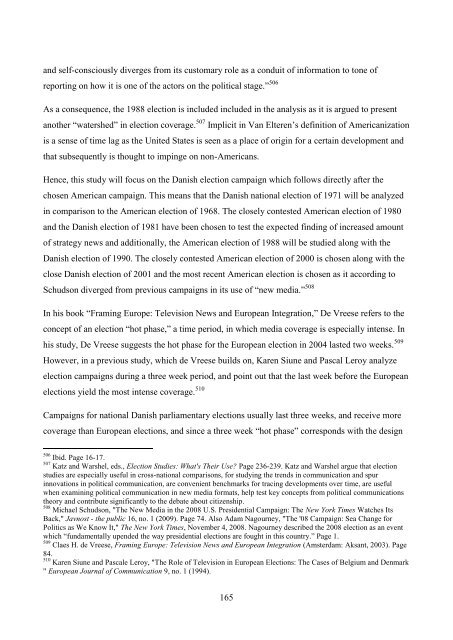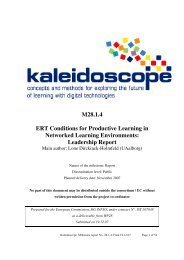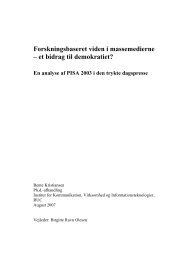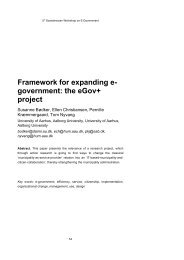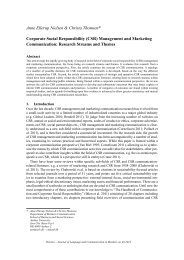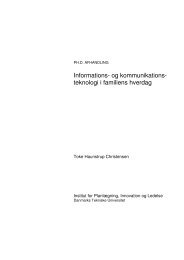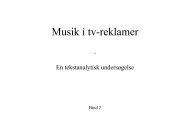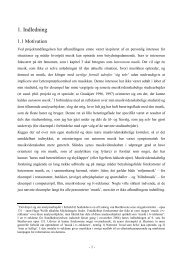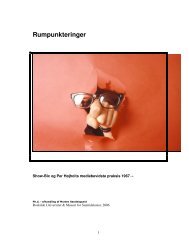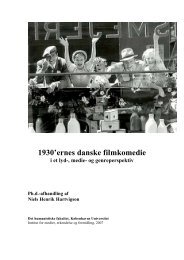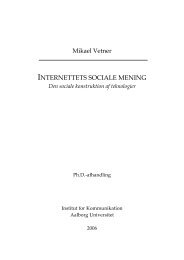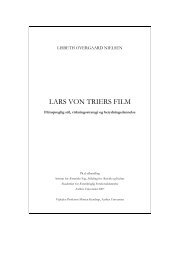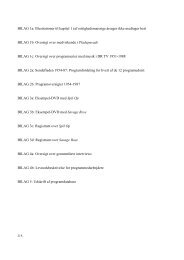The Jeremiad Over Journalism
The Jeremiad Over Journalism
The Jeremiad Over Journalism
Create successful ePaper yourself
Turn your PDF publications into a flip-book with our unique Google optimized e-Paper software.
and self-consciously diverges from its customary role as a conduit of information to tone of<br />
reporting on how it is one of the actors on the political stage.‖ 506<br />
As a consequence, the 1988 election is included included in the analysis as it is argued to present<br />
another ―watershed‖ in election coverage. 507 Implicit in Van Elteren‘s definition of Americanization<br />
is a sense of time lag as the United States is seen as a place of origin for a certain development and<br />
that subsequently is thought to impinge on non-Americans.<br />
Hence, this study will focus on the Danish election campaign which follows directly after the<br />
chosen American campaign. This means that the Danish national election of 1971 will be analyzed<br />
in comparison to the American election of 1968. <strong>The</strong> closely contested American election of 1980<br />
and the Danish election of 1981 have been chosen to test the expected finding of increased amount<br />
of strategy news and additionally, the American election of 1988 will be studied along with the<br />
Danish election of 1990. <strong>The</strong> closely contested American election of 2000 is chosen along with the<br />
close Danish election of 2001 and the most recent American election is chosen as it according to<br />
Schudson diverged from previous campaigns in its use of ―new media.‖ 508<br />
In his book ―Framing Europe: Television News and European Integration,‖ De Vreese refers to the<br />
concept of an election ―hot phase,‖ a time period, in which media coverage is especially intense. In<br />
his study, De Vreese suggests the hot phase for the European election in 2004 lasted two weeks. 509<br />
However, in a previous study, which de Vreese builds on, Karen Siune and Pascal Leroy analyze<br />
election campaigns during a three week period, and point out that the last week before the European<br />
elections yield the most intense coverage. 510<br />
Campaigns for national Danish parliamentary elections usually last three weeks, and receive more<br />
coverage than European elections, and since a three week ―hot phase‖ corresponds with the design<br />
506<br />
Ibid. Page 16-17.<br />
507<br />
Katz and Warshel, eds., Election Studies: What's <strong>The</strong>ir Use? Page 236-239. Katz and Warshel argue that election<br />
studies are especially useful in cross-national comparisons, for studying the trends in communication and spur<br />
innovations in political communication, are convenient benchmarks for tracing developments over time, are useful<br />
when examining political communication in new media formats, help test key concepts from political communications<br />
theory and contribute significantly to the debate about citizenship.<br />
508<br />
Michael Schudson, "<strong>The</strong> New Media in the 2008 U.S. Presidential Campaign: <strong>The</strong> New York Times Watches Its<br />
Back," Javnost - the public 16, no. 1 (2009). Page 74. Also Adam Nagourney, "<strong>The</strong> '08 Campaign: Sea Change for<br />
Politics as We Know It," <strong>The</strong> New York Times, November 4, 2008. Nagourney described the 2008 election as an event<br />
which ―fundamentally upended the way presidential elections are fought in this country.‖ Page 1.<br />
509<br />
Claes H. de Vreese, Framing Europe: Television News and European Integration (Amsterdam: Aksant, 2003). Page<br />
84.<br />
510<br />
Karen Siune and Pascale Leroy, "<strong>The</strong> Role of Television in European Elections: <strong>The</strong> Cases of Belgium and Denmark<br />
" European Journal of Communication 9, no. 1 (1994).<br />
165


